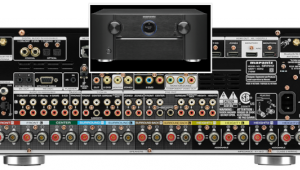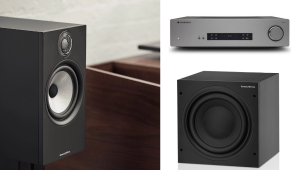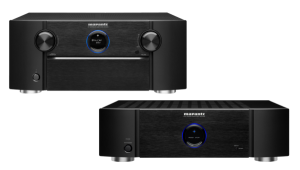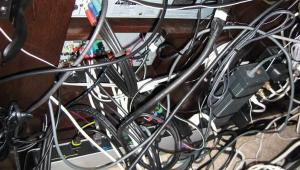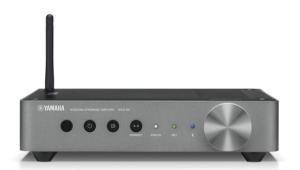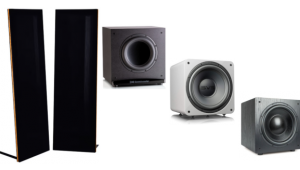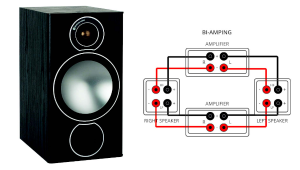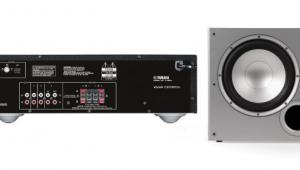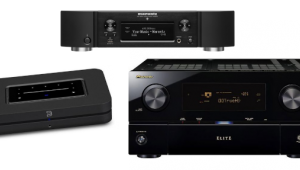AT&T U-verse, HTPC Audio, Sound Color

I've had AT&T U-verse service since 12/08, and I have an issue with audio dropouts on HD channels. I have the set-top box connected to my A/V receiver via optical digital cable. On HD channels with 5.1 audio, I get sporadic dropouts every five minutes or so. I called AT&T and was told it's a firmware issue to be resolved later. I've seen many others mention this problem online.
As a test, I connected rabbit ears to the TV and tuned in a digital channel with 5.1 audio. I got no dropouts at all, which proves it's not the TV.
Cornelius Curry
I've heard many complaints about AT&T's U-verse system, so this does not surprise me. On the other hand, a fellow CE journalist recently told me he has nothing but praise for the service. Your test was an excellent troubleshooting step that clearly indicates the fault is AT&T's. I'm afraid I have no solution other than to wait for the firmware update or drop the service and go with cable, satellite, or Verizon FiOS (if available in your area), which I've heard nothing but good things about.
Audio Computation
I'm looking for speakers for my HTPC, which has onboard 7.1 HD audio. Can you suggest a surround-sound system with 5.1 audio that is compatible with my system? My budget is $300.
Macario
Your HTPC has 7.1 analog outputs as well as optical and coax S/PDIF, so you need a speaker system plus something to power them, i.e., an A/V receiver. I'm afraid that $300 won't get you very far. My best recommendation is the Onkyo HT-SR800, which lists for $600, but I've seen it online for as little as $350. This package includes an A/V receiver and 7.1 speaker system, but no DVD or Blu-ray player, which I assume you don't need, and it performs very well for the money.
Color My World
My question is about "color" in sound. I hear audiophiles talk about this all the time. What is "color" in sound? How do you measure it? How do you remedy it? I'm kinda lost with the jargon. Please help me to understand how to tell if there's too much "color" in my system.
Stacey Queens
When talking about sound, "color" refers to the timbre or harmonic spectrum of an audio signal as it passes through one or more devices. For example, if a speaker or other audio device boosts or emphasizes the high frequencies, the sound is said to be "bright." If the high frequencies are de-emphasized, the sound is said to be "dull." If the upper bass and low midrange are emphasized, it is often called "warm." An audio device that does nothing to the timbre of the sound is said to be "uncolored."
The sonic coloration you end up with can arise from the combined effect of several different elements, including the audio gear, room acoustics, and source materialfor example, many movie soundtracks are inherently bright. Professional audio equipment is designed to be as uncolored as possible, but many consumer products are designed to be somewhat warm because many people tend to like that sound.
Objectively measuring how a system colors the sound requires fairly expensive equipment and training, so it's not something most folks can do themselves. But most audio enthusiasts learn to identify what warm, bright, dull, etc. sound like, especially after listening to many different systems using recordings they are familiar with.
As for "fixing" a colored system, the most common approach is to use an equalizer (EQ), which is found in virtually all A/V receivers and preamp/processors a well as standalone devices. An equalizer lets you boost or cut different frequency ranges to compensate for coloration introduced by the system, but it's not a cure-allmost consumer EQs are not precise enough to make more than very broad changes to the frequency spectrum. Many A/V receivers and pre/pros include an auto-calibration function that automatically sets the EQ for the particular speakers and room, which often helps to reduce the "color" of the system.
If a room's acoustics are coloring the sound, you can install acoustic treatments, but that's a whole other can of worms best left to a professional acoustician.
If you have a home-theater question, please send it to scott.wilkinson@sorc.com.
